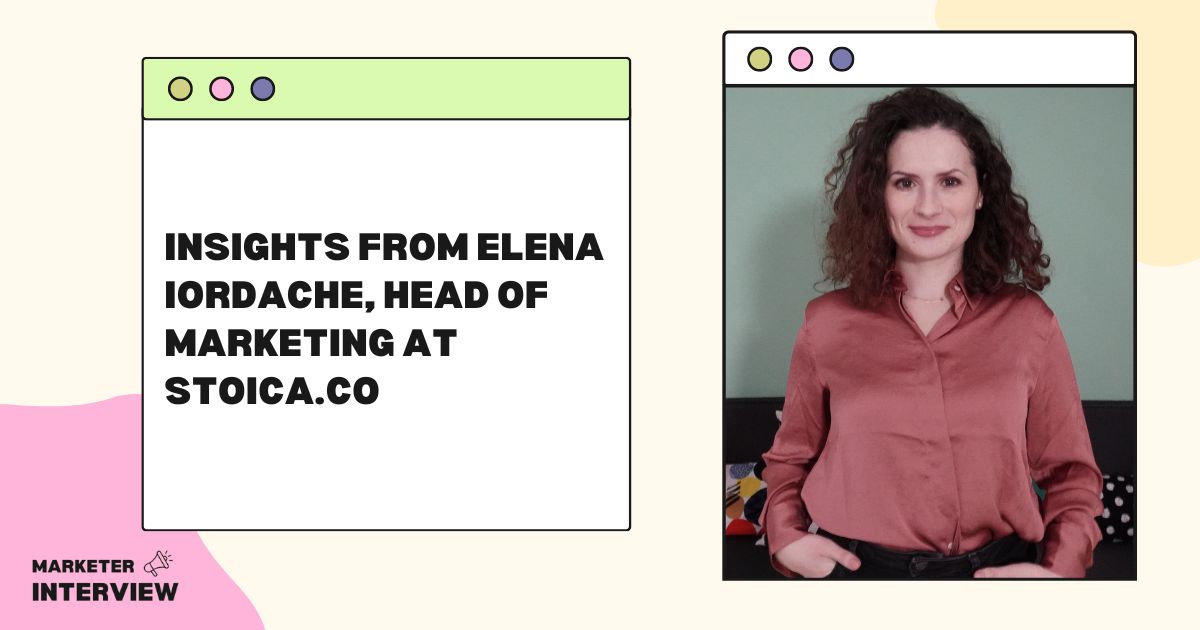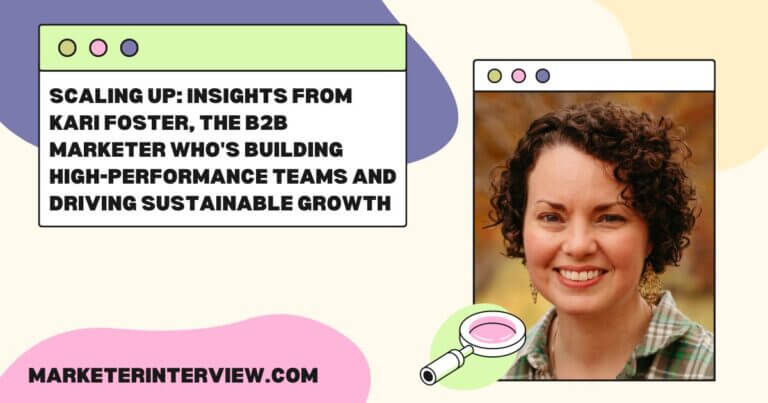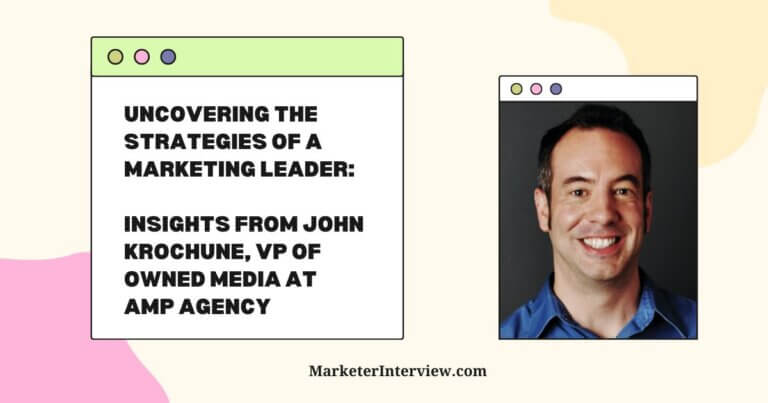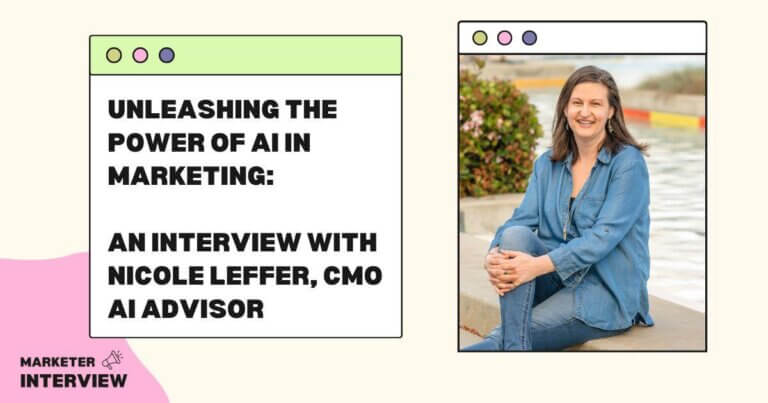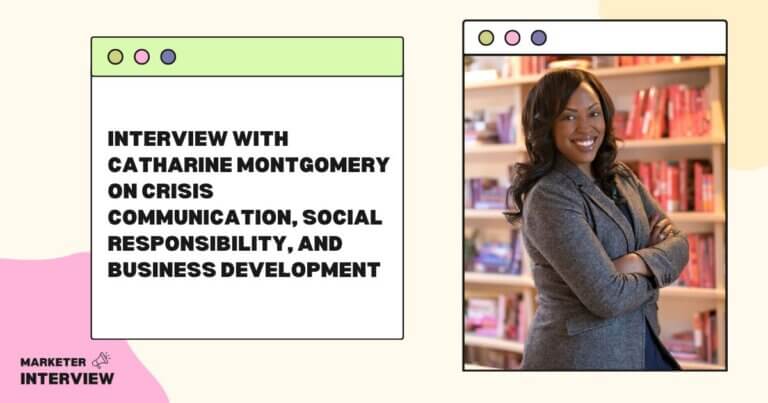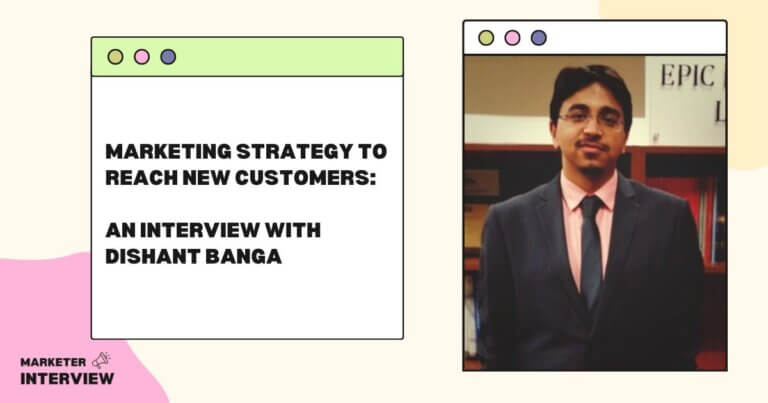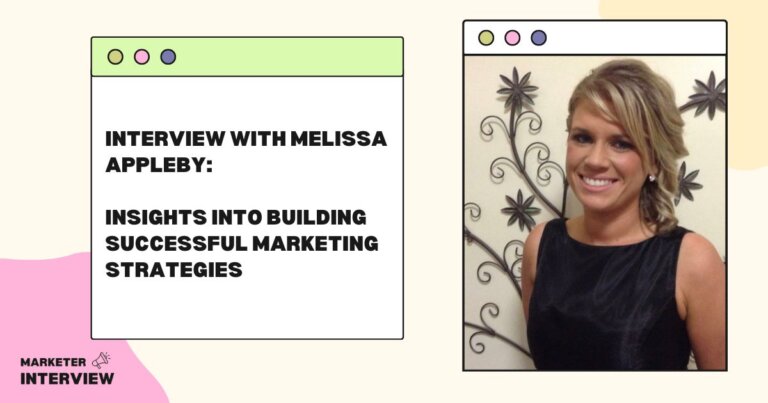Insights from Elena Iordache, Head of Marketing at Stoica.co
Welcome to Marketer Interview!
Today we have Elena Iordache, the Head of Marketing at Stoica.co, joining us for an insightful conversation about B2B marketing strategy and switching careers from sales to marketing.
With over a decade of experience in marketing, Elena is an expert in her field, and we can’t wait to learn from her experiences and insights.
Contents
- 1 Can you tell us about your background?
- 2 What motivated you to switch from a career in sales to marketing?
- 3 What does your day-to-day work as a Head of Marketing at Stoica.co look like?
- 4 How do you prioritize and allocate your marketing budget effectively?
- 5 Can you walk us through a successful B2B marketing campaign you led in the past?
- 6 What do you believe is the most critical aspect of B2B marketing?
- 7 How do you measure the success of your marketing campaigns?
- 8 What tools and software do you use to make your job easier or more efficient?
- 9 What advice would you give to someone starting their career in marketing?
- 10 What do you see as the future of B2B marketing?
Can you tell us about your background?
I studied business administration at the university. At that time, I believed sales was one of the best jobs I could land (salespeople seemed to get all the credit and good financial compensation; what more can you hope for?).
So after a few minor roles, I started doing sales for a multinational IT outsourcing company and then moved to work for a video advertising tech start-up.
As a salesperson, I did a lot of advising and knowledge sharing: I wrote blog articles and case studies and spoke at industry events.
And so I realized that the education and advising side of things was important to me. But as a salesperson, you have a quota to meet, and often, there is no time to “nurture” a cold contact unaware of a problem or solution.
Around that same time, I learned about the inbound marketing philosophy and felt it represented everything I believed. So the idea of moving to a marketing role started to take shape.
I took a two-year break to go on maternity leave, and during that break, I gathered the courage I needed to make the switch and joined STOICA.CO agency in 2019.
What motivated you to switch from a career in sales to marketing?
I grew increasingly attracted to marketing because I realized the importance of advising and educating. The B2B world is complex; people need much information and guidance to choose the right solution for their unique context.
So I was attracted to understanding the customer journey, their motivations and fears, and how their needs and goals connect to my company’s offering.
Marketing was the role in which I could focus on customer research, creating educational content, and distributing it to the right audience – so I decided to move.
What does your day-to-day work as a Head of Marketing at Stoica.co look like?
I have a hybrid role at the agency, raising awareness around STOICA.CO services, but I also work with clients, advising on their marketing strategies.
I have dedicated days for agency work and client work. On the days I do agency work, I usually research new guests for our podcast Value-driven Marketing, organize interviews, or handle podcast distribution.
I also help create sales enablement materials (sales decks, case studies) and join pre-sales calls. So it’s never a dull moment for me.
On the days I manage client work, I keep my morning meetings-free to focus on reviewing KPIs, next tactics to be implemented, research, and have client meetings in the afternoon.
How do you prioritize and allocate your marketing budget effectively?
The main goal for the agency is to raise awareness of how we do things, our point of view on B2B marketing and growth, and share our insights.
So we focus our budget on running the Value-driven Marketing podcast, doing educational webinars on topics related to our services, and attending industry events.
As an agency, our best channels are word of mouth and referrals from happy clients. We also allocate resources to building our online portfolio (on channels such as Dribble and Behance).
Can you walk us through a successful B2B marketing campaign you led in the past?
One of our clients, a fintech company, wanted to build a campaign to reach a particular type of client, local administration offices.
The big challenge was that this audience is hard to reach on social channels (administrative staff doesn’t use LinkedIn, and they are hard to target on Facebook too) and is not solution aware (so reaching them via Google Ads wasn’t feasible).
I approached them on a familiar channel, emailed them, and offered them a highly relevant report. The report tackled a major challenge these offices face: effective tax collection.
We presented the tax collection landscape in Romania and suggested ways local administrative offices could increase tax collection together with two success stories of administration offices using our client’s solution. As a result, the client received 5 high-quality leads and closed 2 new deals.
The campaign was effective because we researched, understood the problems the target audience cared about and what messages they would resonate with, and reached them on their preferred communication channel.
The timing was another success factor, as taxpayers are financially incentivized to pay their taxes by the end of Q1. As a result, administrative offices do their best to increase collections in Q1 (the campaign was run around that time).
What do you believe is the most critical aspect of B2B marketing?
Understanding who your best clients are and how they buy is the most crucial element in B2B marketing.
If you don’t know how your clients buy, what influences their decisions, what alternatives they consider, who is involved in making the decision, and what it would take for them to break the status quo (make the change from where they are now), it will be tough to influence them.
The buying journey in B2B is tangled, and it’s made up of a mix of rational and emotional factors – the better you know that journey and decisive moments, the more relevant your communication and marketing efforts will be.
Creativity and tactics are the salt and pepper of an excellent marketing campaign, but you must know what ingredients to add in the correct order (the right message and offer to the right audience) to get a great dish.
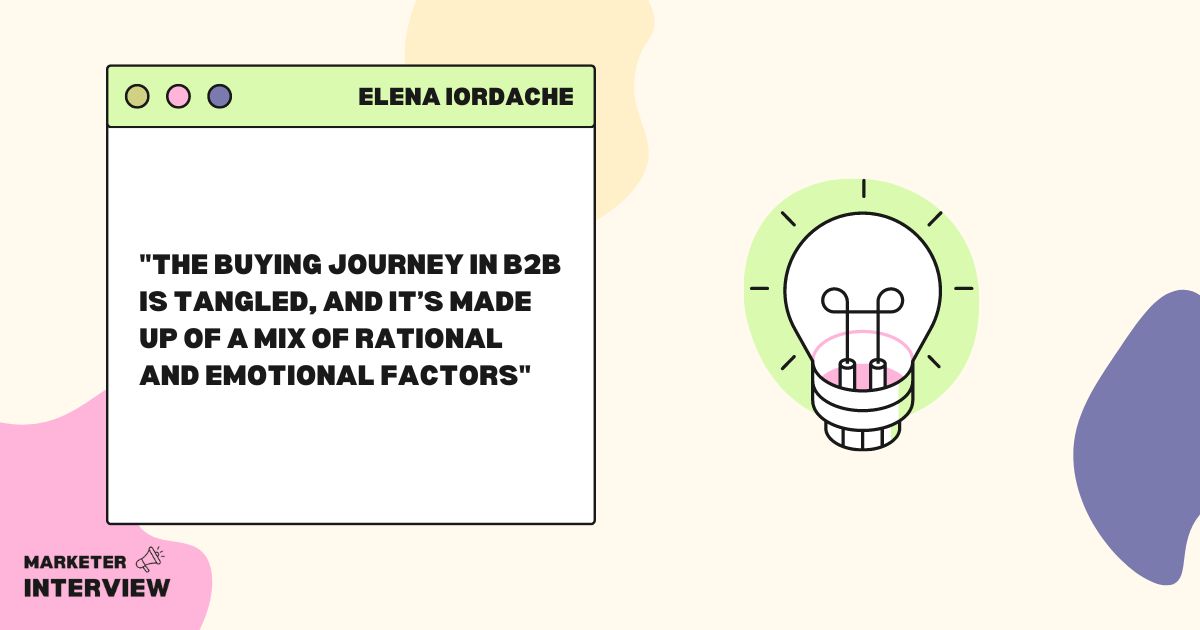
How do you measure the success of your marketing campaigns?
The KPIs I look at are our social reach, website visits increase, number of inbound leads, conversion rates from inbound leads to MQLs, and then from MQLs to sales.
What tools and software do you use to make your job easier or more efficient?
I rely on HubSpot for managing marketing campaigns and tracking results.
Having the CRM as the single source of client information for marketing and sales is a big plus, and marketing to sales handoff happens in real time.
Canva is another helpful tool. I have no design skills, so our designers built a couple of templates in Canva that I repeatedly use (for social media visuals, blog article images, etc.).
I also like Grammarly for spell-checking and SEMRush for keyword and content research.
What advice would you give to someone starting their career in marketing?
Great marketers’ three essential skills are understanding the business side of things (business goals, how the company operates, what is the service or product, and how the industry works), prioritizing, and communicating clearly with internal stakeholders.
So my advice would be to focus on understanding the business from day one (which can mean making friends with colleagues in other departments, enrolling in internal training, etc.).
Try to prioritize the most impactful 2-3 actions instead of covering multiple activities simultaneously or jumping from tactic to tactic. And get into the habit of talking about your work (to your direct manager, and later on to leaders in other departments).
And lastly, approach everything with a growth mindset: you’ll make many mistakes along the way, which is fine. However, consider errors a learning opportunity and never a measurement of your knowledge.
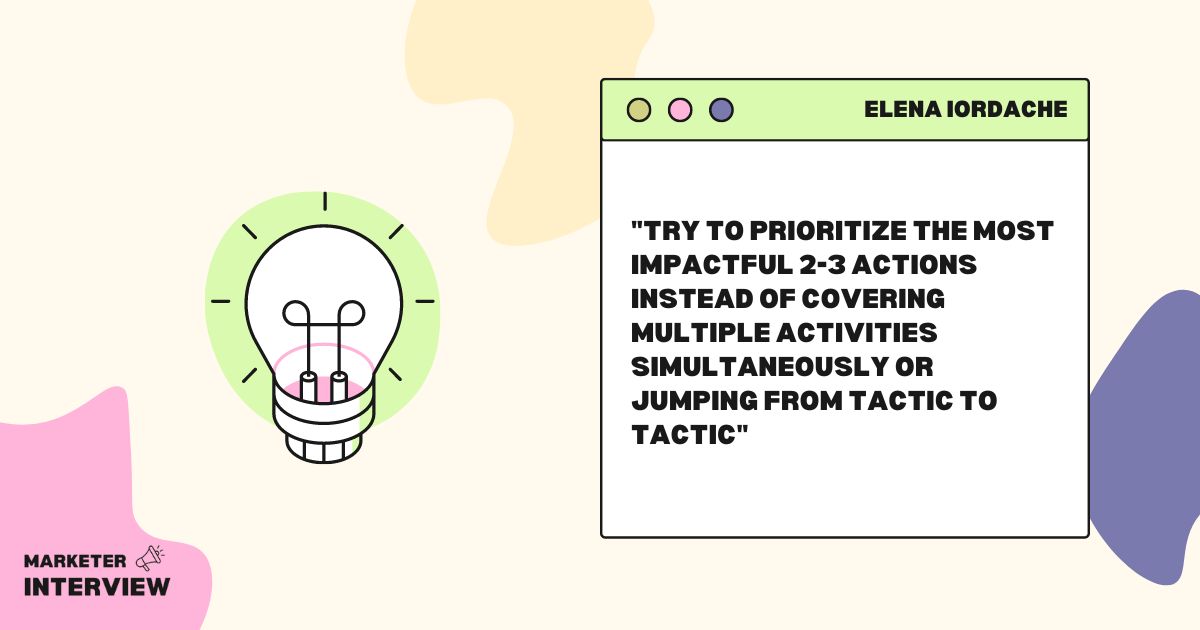
What do you see as the future of B2B marketing?
The future of B2B marketing will be about putting the customer at the heart of communication.
Customer research (qualitative, done through interviewing clients, and quantitative – using software to gather intel on your audience constantly) will become more critical. Businesses cannot rely on product-focused communication as they do today.
Investing in your employees’ branding will be as important as investing in your company’s brand. More companies will create programs to help critical employees grow their brands. People trust and want to interact with people much more than they want to interact with a faceless brand.
I would advise marketers to pay attention to building their 1st party data (data your company owns) and investing in software that allows them to learn about your customer’s interactions with your brand and their path to purchase.
Content will continue to be an essential marketing tactic. Still, how we consume video will continue to shift towards video (especially short-form), so companies that manage to distill complex information in short and engaging videos will win.
Lastly, we all could benefit from using AI to automate our work and deliver specific tasks faster (such as building reports from your CRM – see ChatSpot or doing content research).
We’re just beginning to see the possibilities of AI, and I hope we keep an open mind to possibilities (AI won’t steal our jobs too soon, I think, but rather make our lives more manageable).
